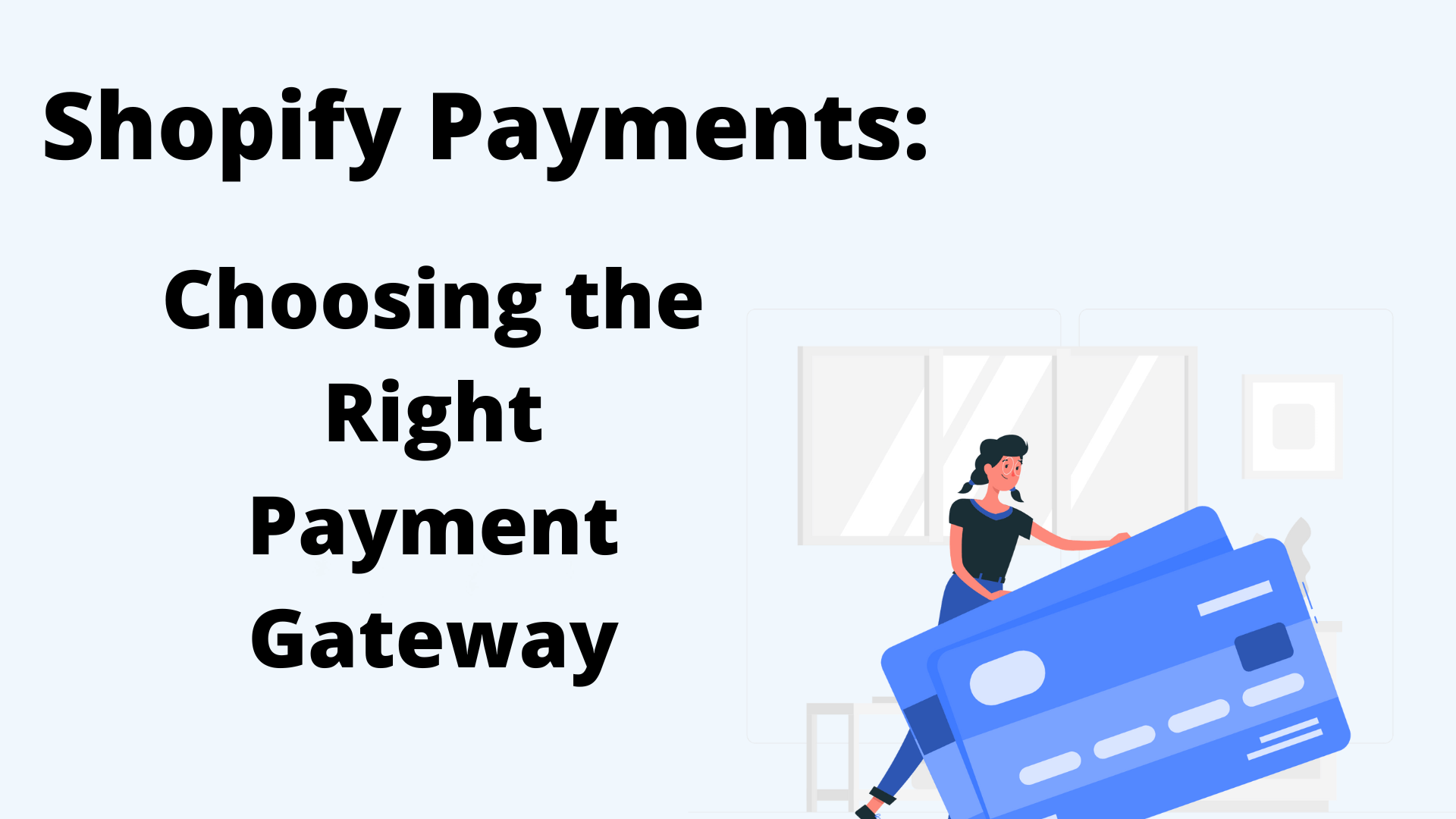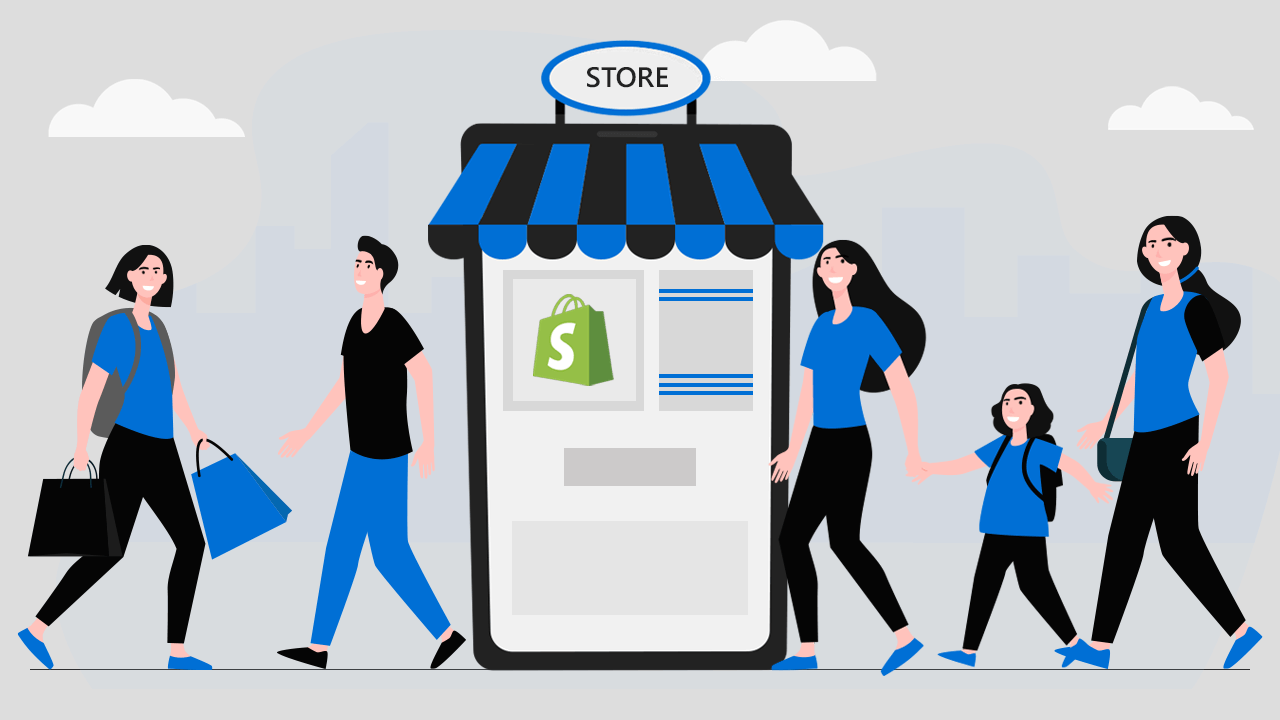
Shopify Payments offers numerous benefits to Shopify store owners, making it the preferred choice for many merchants over third-party payment providers.
One of the main advantages of using Shopify Payments is its seamless integration with the Shopify platform. Being a native solution, it eliminates the need for third-party integrations and streamlines the entire checkout process. This ensures a smoother and more user-friendly experience for customers, increasing the likelihood of completed transactions.
Shopify Payments also offers competitive rates and transparent pricing structures. With no additional transaction fees on top of Shopify's own fees, merchants can maintain better profit margins. This is particularly advantageous for smaller businesses looking to maximize their earnings.
Security is another key advantage of Shopify Payments. As a PCI DSS Level 1 compliant payment gateway, it offers secure payment processing and protects customer data from potential breaches. Furthermore, chargeback fees are significantly reduced compared to using third-party providers, protecting business owners from unexpected financial losses.
Additionally, Shopify Payments provides support for a wide range of payment methods including major credit and debit cards, as well as alternative payment options like digital wallets. This versatility ensures that customers can pay using their preferred method, enhancing the overall shopping experience.
Overall, Shopify Payments offers a native solution that integrates seamlessly with the Shopify platform, provides competitive rates, ensures payment security, and supports a wide range of payment methods. These advantages make it the preferred payment gateway for many merchants and a reliable choice for online businesses.
Understanding Payment Gateways
Payment gateways play a crucial role in any online business. They facilitate the secure processing of customer payments, enabling businesses to accept various forms of payment, such as credit cards, debit cards, and digital wallets. Choosing the right payment gateway is essential for ensuring a seamless and secure checkout process, as well as providing customers with flexible payment options. In this article, we will explore the different factors to consider when selecting a payment gateway for your online store, including integration with your ecommerce platform, pricing structures, security measures, and the range of payment methods supported. By understanding the features Import Template and benefits of different payment gateways, you can make an informed decision that will enhance the overall shopping experience for your customers while maximizing your business's profitability.

Different Types of Payment Gateways
When it comes to Shopify Payments, there are several types of payment gateways available to choose from. These gateways provide the necessary functionality to process online payments securely and efficiently.
One type of payment gateway is the redirect gateway. With this option, customers are redirected to a third-party payment provider's website to complete their transaction. This type of gateway ensures that sensitive payment information is handled by the third-party provider, alleviating any security concerns for the merchant.
Another type is the hosted gateway. Shopify Payments offers hosted gateways as the default option. With this type of gateway, customers can complete their entire checkout process without leaving the merchant's website. This provides a seamless and convenient experience for customers, improving the likelihood of completing the purchase.
Lastly, there is the self-hosted gateway. While Shopify Payments primarily supports hosted gateways, it also offers support for self-hosted gateways for more technical solutions. With a self-hosted gateway, merchants have greater control over the payment process and can tailor it to their specific needs.
In conclusion, Shopify Payments offers a variety of payment gateways, including redirect, hosted, and self-hosted options. While hosted gateways are the default choice, selfhosted gateways are also available for those looking for more technical control. Merchants can choose the gateway that best suits their business and customer needs.
Selecting the Right Payment Gateway for Your Business
When selecting a payment gateway for Shopify Payments, there are several important factors to consider. First and foremost, transaction fees play a significant role in the profitability of your business. Compare the transaction fees offered by different payment gateways to ensure you are choosing the most affordable option for your business.
Another crucial factor is the types of credit cards accepted. Make sure the payment gateway supports all major credit card providers, such as Visa, Mastercard, and American Express. This will ensure you can cater to a wide range of customers and maximize your sales potential.
Security features are also paramount. Look for a payment gateway that offers robust fraud protection measures, such as tokenization and address verification, to safeguard your customers' sensitive payment information and prevent unauthorized transactions.
Processing time is another critical consideration. Choose a payment gateway that facilitates fast and efficient processing of online transactions. The quicker the funds are deposited into your business account, the better for your cash flow.
Lastly, consider the ease of integration with your ecommerce platform and mobile payments. Look for a payment gateway that seamlessly integrates with Shopify and supports popular mobile payment methods. This will provide a convenient and hasslefree checkout experience for your customers.
By carefully evaluating these factors - transaction fees, credit card types, security features, processing time, and ease of integration - you can select the right payment gateway for your business, ensuring smooth and secure online transactions.
Factors to Consider When Choosing a Payment Gateway for Shopify Payments
When it comes to setting up an online store on Shopify, selecting the right payment gateway can make a significant impact on your business success. There are several factors to consider when choosing a payment gateway for Shopify Payments. Firstly, ensure that the gateway supports all major credit card providers, including Visa, Mastercard, and American Express, to cater to a wide range of customers. Additionally, prioritize the security features offered by the payment gateway, such as tokenization and address verification, to protect customer payment information and prevent unauthorized transactions. Consider the processing time as well, opting for a gateway that facilitates fast and efficient transactions to improve cash flow. Lastly, look for a payment gateway that seamlessly integrates with Shopify and supports popular mobile payment methods to enhance the checkout experience for customers. By considering these factors, you can make an informed decision and ensure a smooth payment process for your online store.
Transaction Fees and Profit Margins
When selecting a payment gateway for Shopify Payments, it's crucial to consider transaction fees and their impact on profit margins. Transaction fees are charges incurred each time a customer makes a purchase using a credit or debit card. These fees can vary depending on the payment gateway provider.
High transaction fees can eat into your profit margins and reduce your overall earnings. To choose the right payment gateway, you need to evaluate the transaction fees they charge. Look beyond just the percentage charged per transaction and consider other fees like monthly fees, annual fees, settlement fees, chargeback fees, and cancellation fees. These additional fees can also significantly impact your profit margins.
Consider your business's transaction volume and average order value when comparing payment gateway options. For example, if you have a high volume of transactions, a payment gateway with lower transaction fees but higher monthly fees might be more cost-effective. On the other hand, if your average order value is high, a payment gateway with lower transaction fees might be better even if they have higher monthly fees.
Ultimately, the goal is to find a balance between transaction fees, monthly fees, and other charges to maximize your profit margins. Take the time to research and compare different payment gateway providers' pricing structures and fee schedules before making a decision. By doing so, you can ensure that you're selecting a payment gateway that aligns with your business needs and optimizes your cash flow.
Credit Card Types Accepted
When choosing a payment gateway for your Shopify store, it's crucial to consider the types of credit cards that are accepted. Shopify Payments, the default payment gateway offered by Shopify, is compatible with major credit card providers such as MasterCard, VISA, and American Express.
Accepting a wide range of credit cards ensures that your customers have the flexibility to choose their preferred payment method. MasterCard and VISA are two of the most widely used credit card providers globally, so compatibility with these cards is essential for reaching a broad customer base.
American Express, another major credit card provider, is also accepted by Shopify Payments. By enabling customers to use their American Express card for purchases, you can cater to those who prefer this specific credit card.
Ultimately, by accepting various types of credit cards through Shopify Payments, you provide your customers with a convenient and seamless shopping experience. This flexibility in payment methods can help increase customer satisfaction and drive higher conversion rates for your online store.

Security and Fraud Protection Features
When it comes to choosing the right payment gateway for your Shopify store, security and fraud protection should be top priorities. Shopify Payments offers robust security features that protect both you and your customers against fraudulent activities.
With built-in risk and fraud detection mechanisms, Shopify Payments helps identify and prevent potentially fraudulent orders. This includes monitoring suspicious activities such as unusually high-value transactions or multiple orders from the same IP address. By flagging these orders, you can review them and take appropriate action to prevent any potential losses.
Shopify Payments is also PCI compliant, meaning it meets the highest standards for protecting sensitive credit card data. This ensures that your customers' payment information is encrypted and securely stored, reducing the risk of data breaches or theft.
Furthermore, Shopify Payments provides tools to help you review and prevent fraudulent orders. You can set up manual review processes or enable automated filters that flag orders based on specific criteria such as high-risk countries or suspicious transaction patterns. This flexibility allows you to tailor your fraud prevention measures to your specific business needs.
In summary, Shopify Payments offers comprehensive security and fraud protection features. From built-in risk detection to PCI compliance and order review tools, you can trust that your customers' payment information is safe and secure, giving them the confidence to shop on your store
Processing Time and Business Days
When choosing a payment gateway for your Shopify Payments, it's important to consider the processing time and business days associated with the setup. The processing time refers to the time it takes for your selected payment provider to review and approve your application, as well as set up the necessary integration with your Shopify store.
Different payment providers have varying setup times, which can range from less than a day to several weeks. Factors such as background checks, compliance issues, and the complexity of your specific business requirements can all influence the processing time.
During this period, it's crucial to plan accordingly and be aware of any potential delays. Keep in mind that weekends and holidays may not be counted as business days, so the actual time frame for setup is often longer than expected.
To ensure a smooth and efficient setup process, it's beneficial to provide accurate and complete information during the application process. This includes details about your business, such as its legal structure, location, and products or services offered.
By understanding the processing time and business days associated with selecting a payment gateway, you can effectively manage your expectations and plan for a seamless integration with Shopify Payments.
Ease of Integration with Ecommerce Platforms & Mobile Payments
Integration with ecommerce platforms and mobile payments has become increasingly easy and seamless with the help of payment gateways. These gateways act as the bridge between your online store and the payment processors, allowing you to securely process customer transactions.
When it comes to popular ecommerce platforms like Shopify, the integration process is straightforward and hassle-free. Shopify offers a wide range of payment gateway options, including their default payment gateway, Shopify Payments, which simplifies the setup process for merchants. Additionally, Shopify integrates seamlessly with other popular payment gateways such as PayPal, Stripe, and Authorize.Net, giving you flexibility in choosing your preferred payment method.
When assessing the compatibility of a payment gateway with different ecommerce platforms and mobile payment options, there are a few key factors to consider. First, ensure that the payment gateway supports the specific ecommerce platform you are using. It's also important to check if the gateway supports the major payment methods like credit cards, debit cards, and bank transfers to cater to a wide range of customer preferences.
In today's mobile-driven world, it is crucial to choose a mobile-friendly payment gateway. This means that it should be responsive and optimized for mobile devices, offering a seamless checkout process for customers on smartphones or tablets. Additionally, having the ability to accept payments through popular digital wallets like Apple Pay or Google Pay can enhance the buying experience for mobile users and increase conversion rates.
In conclusion, the ease of integrating payment gateways with ecommerce platforms and mobile payments has greatly improved, making it easier than ever for merchants to process payments and provide a smooth checkout process for customers. By considering factors like platform compatibility, mobile-friendliness, and acceptance of digital wallets, you can choose the right payment gateway that meets your business needs and offers a seamless payment experience to your customers.
International Payments Acceptance
Accepting international payments is crucial for any online business looking to expand its customer base and increase revenue. When selecting a payment gateway to enable international transactions for Shopify Payments, there are several factors to consider.
One of the most important considerations is multiple currency support. Since customers from different countries will be making purchases, it is essential to choose a payment gateway that can process payments in various currencies. This allows customers to see prices in their local currency, providing a seamless and convenient shopping experience.
Security is another critical factor when processing international payments. It is essential to select a payment gateway that offers robust security measures to protect sensitive customer information. Look for gateways that are PCI DSS compliant and offer fraud detection and prevention tools to minimize the risk of fraudulent transactions.
When accepting international payments, there may be additional fees to consider. Some payment gateways may charge higher transaction fees for processing international transactions or impose currency conversion fees. It is important to understand the pricing structure and weigh the potential costs against the benefits of expanding into international markets.
Several payment gateways excel in offering robust international payment acceptance capabilities. Providers like PayPal, Stripe, Worldpay, Adyen, and 2Checkout have a global presence and support multiple currencies, making them ideal choices for Shopify merchants looking to accept international payments.
In conclusion, accepting international payments is essential for expanding your business globally. When selecting a payment gateway for Shopify Payments, consider factors such as multiple currency support, security considerations, and potential additional fees. Choose a payment gateway that offers robust international payment acceptance capabilities to provide a seamless and secure shopping experience for your international customers.
Person-to-Person Payments Capability
Shopify Payments now offers a powerful capability that allows merchants to accept payments directly from customers, without the need for a third-party payment processor. This feature, known as person-to-person payments, enables a more streamlined transaction process for both the merchant and the customer.
With person-to-person payments, customers can make a direct payment to the merchant through the Shopify platform. This eliminates the additional steps and potential delays that come with involving a third-party payment processor. As a result, transactions are processed faster, and merchants can benefit from quicker access to their funds.
One of the significant advantages of person-to-person payments is the reduction in transaction fees. By bypassing the involvement of a third-party payment processor, merchants can avoid the fees typically associated with such services. This can have a positive impact on the merchant's profit margins, especially for businesses with high transaction volumes.
Additionally, person-to-person payments provide a more seamless checkout experience for customers. Without being redirected to an external payment platform, customers can complete their transactions directly on the merchant's Shopify store. This enhances the overall customer experience, leading to higher customer satisfaction and potentially increased sales.
Overall, the person-to-person payments capability offered by Shopify Payments provides merchants with greater control over their payment processing. By accepting payments directly and eliminating the need for a third-party payment processor, businesses can enjoy faster transaction processing and reduced transaction fees, ultimately contributing to improved cash flow.

Default Payment Gateway Setup Options
When setting up Shopify Payments, merchants have the option to choose their default payment gateway. Shopify offers three default payment gateway setup options: Shopify Payments, third-party providers, and manual payments.
With Shopify Payments, merchants can easily accept payments directly through their Shopify store. This default payment gateway provides a seamless integration and simplifies the checkout process for customers. It supports major credit cards, debit cards, and popular payment methods like Apple Pay and Google Pay.
The second option is third-party providers, which allows merchants to integrate with external payment gateways such as PayPal, Stripe, or Authorize.Net. These third-party payment gateways offer a wide range of payment options and are suitable for businesses that have specific requirements or prefer using a particular payment processor.
Lastly, manual payments allow merchants to accept offline payments, such as bank transfers or cash on delivery. This option can be useful for businesses that want to offer flexible payment options or cater to customers who prefer not to use online payment methods.
When selecting a payment gateway, merchants should consider factors such as supported countries, accepted payment methods, transaction fees, and security features. Some payment gateways may have additional transaction fees or limited support for international payments. It's important for merchants to choose a payment gateway that aligns with their business needs and provides a secure and convenient payment experience for their customers.
Popular Payment Gateways for Shopify Payments
When it comes to popular payment gateways for Shopify Payments, there are several options to choose from. Each gateway offers its own set of features, processing fees, and accepted payment methods. Here are some top choices:
- PayPal: PayPal is a widely recognized and trusted payment gateway that accepts major credit cards, debit cards, and PayPal payments. It offers competitive processing fees and provides a seamless checkout experience for customers.
- Stripe: Stripe is another popular choice among Shopify merchants. It supports a wide range of payment methods, including credit cards, debit cards, and digital wallets like Apple Pay and Google Pay. Stripe's transparent pricing structure and competitive processing fees make it attractive for businesses of all sizes.
- Authorize.Net: Authorize.Net is a leading payment gateway that accepts major credit cards and offers flexibility in payment options. It also provides additional features like fraud detection tools and recurring billing, making it suitable for businesses with subscription-based models.
- Amazon Pay: Amazon Pay is a convenient and secure payment gateway that allows customers to use their Amazon account to make purchases. It supports major credit cards and offers a streamlined checkout process. The processing fees for Amazon Pay vary depending on the transaction volume.
These popular payment gateways offer a wide range of payment options and integrate seamlessly with Shopify, providing merchants with flexibility and convenience in processing customer transactions.
 Shopify Payments offers numerous benefits to Shopify store owners, making it the preferred choice for many merchants over third-party payment providers.
One of the main advantages of using Shopify Payments is its seamless integration with the Shopify platform. Being a native solution, it eliminates the need for third-party integrations and streamlines the entire checkout process. This ensures a smoother and more user-friendly experience for customers, increasing the likelihood of completed transactions.
Shopify Payments also offers competitive rates and transparent pricing structures. With no additional transaction fees on top of Shopify's own fees, merchants can maintain better profit margins. This is particularly advantageous for smaller businesses looking to maximize their earnings.
Security is another key advantage of Shopify Payments. As a PCI DSS Level 1 compliant payment gateway, it offers secure payment processing and protects customer data from potential breaches. Furthermore, chargeback fees are significantly reduced compared to using third-party providers, protecting business owners from unexpected financial losses.
Additionally, Shopify Payments provides support for a wide range of payment methods including major credit and debit cards, as well as alternative payment options like digital wallets. This versatility ensures that customers can pay using their preferred method, enhancing the overall shopping experience.
Overall, Shopify Payments offers a native solution that integrates seamlessly with the Shopify platform, provides competitive rates, ensures payment security, and supports a wide range of payment methods. These advantages make it the preferred payment gateway for many merchants and a reliable choice for online businesses.
Shopify Payments offers numerous benefits to Shopify store owners, making it the preferred choice for many merchants over third-party payment providers.
One of the main advantages of using Shopify Payments is its seamless integration with the Shopify platform. Being a native solution, it eliminates the need for third-party integrations and streamlines the entire checkout process. This ensures a smoother and more user-friendly experience for customers, increasing the likelihood of completed transactions.
Shopify Payments also offers competitive rates and transparent pricing structures. With no additional transaction fees on top of Shopify's own fees, merchants can maintain better profit margins. This is particularly advantageous for smaller businesses looking to maximize their earnings.
Security is another key advantage of Shopify Payments. As a PCI DSS Level 1 compliant payment gateway, it offers secure payment processing and protects customer data from potential breaches. Furthermore, chargeback fees are significantly reduced compared to using third-party providers, protecting business owners from unexpected financial losses.
Additionally, Shopify Payments provides support for a wide range of payment methods including major credit and debit cards, as well as alternative payment options like digital wallets. This versatility ensures that customers can pay using their preferred method, enhancing the overall shopping experience.
Overall, Shopify Payments offers a native solution that integrates seamlessly with the Shopify platform, provides competitive rates, ensures payment security, and supports a wide range of payment methods. These advantages make it the preferred payment gateway for many merchants and a reliable choice for online businesses.









